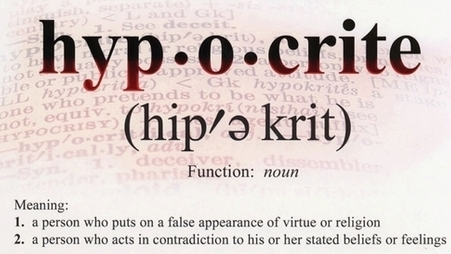Many of you are no doubt familiar with the rhetorical pattern that follows every instance of jihadist violence. While most sane people express some mixture of grief and outrage, others seem more interested in justifying said violence or even victim-blaming. If this hasn’t already happened in the case of the recent attack on Brussels, it won’t be long before deeply illiberal outlets like Salon and Alternet begin to query the length of Belgium’s skirt and the propriety of her plunging neck line.
There seems to be a belief among the regressive left that pre-empting such views with a condemnation of the atrocity effectively insulates them from criticism. Irrespective of what followed, they can always point to their initial condemnation in response to charges of Islamist apologia. It’s a strategy that often works, too. You’d be surprised how many people set the moral bar so low that simply expressing an opposition to mass murder is sufficient to deflect criticism.
To be clear, there’s a difference between explaining/examining the causes of a crime and using said explanation to then justify the crime. Not every article on Brussels has to be, or even should be, about mourning the victims. However, in my experience explanation rather often gives way to justification. For example, it’s reasonable to claim that the Charlie Hebdo massacre occurred because the magazine caricatured the prophet Muhammad. But it is not reasonable to on that basis focus blame on the cartoonists for their religious insensitivity. It is morally irrelevant. Unfortunately, this is what I tend to see from people who claim to be liberals. In its simplest form—generally on Twitter—this brand of victim-blaming looks something like this:
The mass murder of cartoonists is wrong, but those cartoonists were racist/insensitive/Islamophobic.
So, what’s wrong with the view expressed above? Quite apart from communicating a near-psychopathic lack of empathy, it largely comes down to emphasis. To illustrate my point, let’s flip the clauses and see how the sentence reads.
Those cartoonists were racist/insensitive/Islamophobic, but the mass murder of cartoonists is wrong.
If you think the sentences are functionally identical, you’re either lying to yourself or your reading comprehension leaves something to be desired. The emphasis is on the second clause. The former is merely sugar for the medicine of the latter. It’s in many ways similar to the phrases “with all due respect” and “don’t take this the wrong way”. It should come as no surprise that these platitudes are scant consolation to the person subsequently being called an asshole. Their primary purpose is to make you feel better, not the target of your derision. Likewise, condemning mass murder before then going on to justify it is purely an act of self-preservation. At best, you’re communicating indifference toward the victims. At worst, you’re communicating contempt for them.
That’s why I and, one suspects, many others take issue with people who pay lip-service to moral decency just so they can move onto more important business, such as vilifying the West and laying the blame everywhere except where it belongs: with the perpetrators.
Note: After a Twitter back and forth with someone whose opinion I respect, it became apparent that I hadn’t distinguished between people who focus on causes as a means of explaining jihadist violence and those who do so to shift blame onto the victims. Hopefully the current draft makes that distinction clear.

